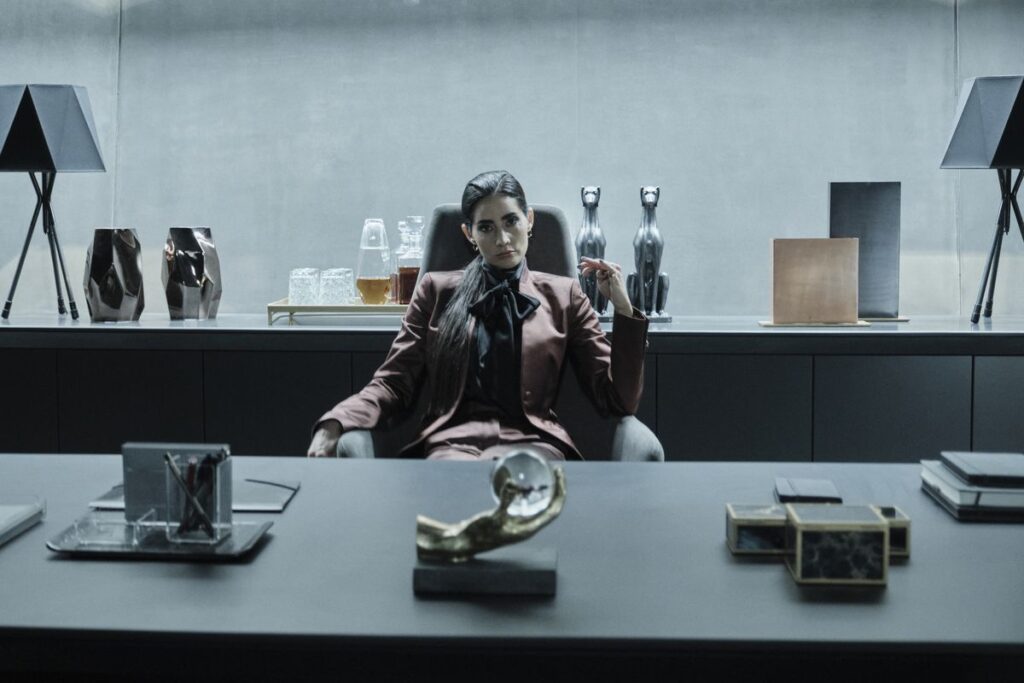The world of the Resident Evil is, largely, a clear-cut one: You have your good guys and your bad guys, the latter of which come in the form of both horrifying creatures (zombies and spiders and the like) and the capitalistic monsters at the Umbrella Corporation.
[Ed. note: This post contains spoilers for Resident Evil season 1.]
Though Netflix’s Resident Evil series takes all it can get from the Resident Evil universe — with everything and anything being taken as canon gospel — the actresses who play two of the show’s most nefarious characters are glad their roles feel enigmatic in their antagonism.
“I mean, ‘misunderstood’ means complex [for characters], right?” Adeline Rudolph, who plays grown-up Billie Wesker, tells Polygon. “If you’d ask Siena [Agudong], young Billie […] it’s a completely different show, right?”
For her, older Billie captured the promise that a television show could offer the Resident Evil franchise decades into its lifespan: How does a character live, or even thrive, in such a cutthroat world? In the end, she embraced that Billie was a character who had nuance but a singular focus of the world.
“I think for older Billie, it’s absolutely a story of heartbreak, and pain, and trauma. Of survival. And then choosing a path of how she feels like she can survive the best in this future world,” Rudolph says. “She’s very one-sided with [how she sees the future] because she’s gone through so much that she now believes she has the ultimate answer to how we’re going to move forward. Because everything else has been destruction in her life.”
Though she comes from a very different standing in the story, Paola Núñez feels the same about her character, Evelyn, who’s the villainous, pore-free face of the Umbrella Corporation’s reckless greed in the 2022 timeline.
Photo: Marcos Cruz/Netflix
“I think the story of Evelyn is the corporate world, and how to succeed in the corporate world and how to be the best — she wants to be the best, and she wants to be known, she wants to be respected in the world,” Núñez says.
Though her plot line is one that speaks to the ravenous irresponsibility of Umbrella’s entire aim, it also speaks to a world that was desperate for a cure far before zombies became the biggest problem. The Joy antidepressant Evelyn is trying to push to market (waaay too quickly) is her brainchild, a push to turn away from bioweaponry and instead harness some of that evil genius for a cure to depression, anxiety, and obsessive-compulsive disorder. OCD is a particularly hard-to-treat condition, but none of those mental illnesses have a silver bullet cure; most take some mixture of therapy and medication to control.
While Big Pharma has always been a key part of the Umbrella Corporation’s whole thing, Netflix’s Resident Evil doesn’t approach Umbrella as bad simply because they’re engaging in shady practices; rather, the whole system behind the enterprise seems rotten, even when they’re trying to do the right thing. In their own ways, Billie and Evelyn are representative of how that system can evangelize people to keep perpetuating it.
“[Evelyn] actually thinks that she can change the world in a good way. She’s just not thinking about the consequences, of course,” Núñez says. “So her ego is so big that she forgets or she distances herself from other people in a way that she loses all empathy and she makes the wrong choices.”
Not every person making bad choices is working with the dreaded T-virus leading to a rampant zombie outbreak that turns some six billion people into flesh-eating monsters. But with Resident Evil, there’s room for the possibility that not all mistakes are borne out of a desire to do (wait for it) evil.
Additional reporting by Joshua Rivera.

